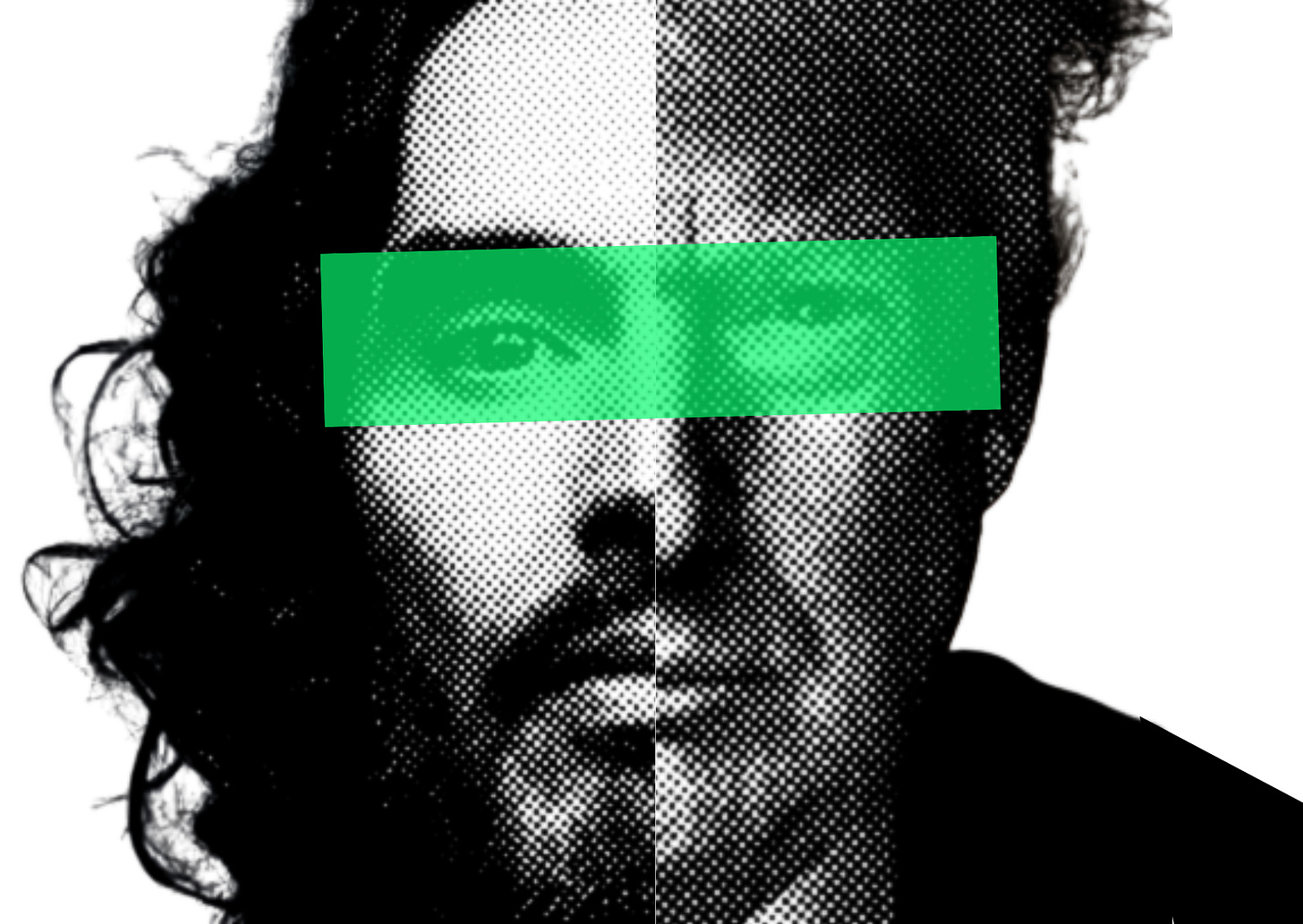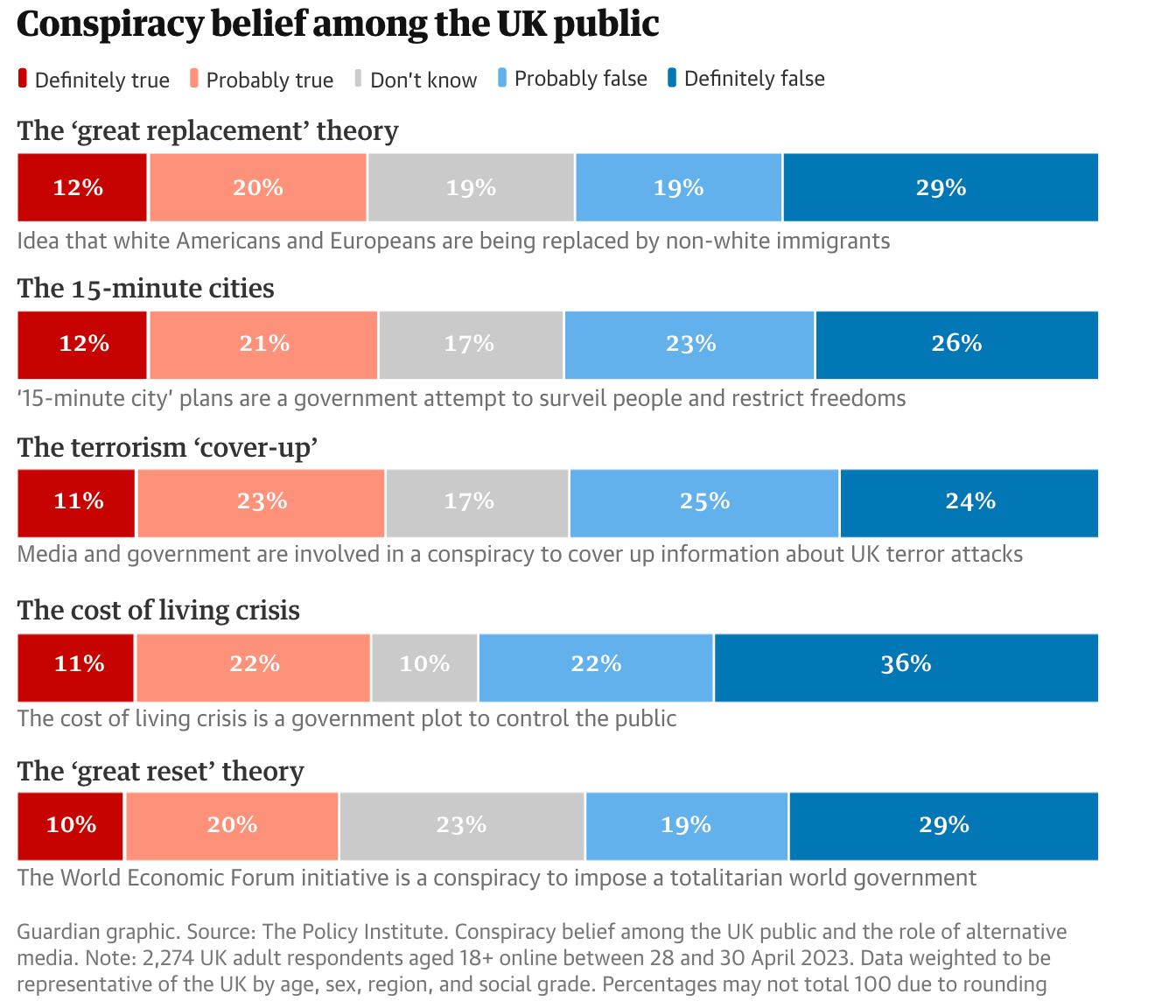Conspiracy: The Perfect Defensive Tool
How everyone from comedians to politicians are able to deny their own behaviour on the basis that others want to see them fall.
This piece has been written off of the back of the responses to the allegations cast on Russell Brand through the investigative teams of C4’s dispatches and the Sunday Times. If you aren’t aware of the claims I recommend you watch the Dispatches here, and read the article here. You can also see Russell Brand’s preemptive response here.
There appears to be a new accessible get out of jail free card, at least in the eye of a public figure's fan base: that’s to paint any allegation posed as an unjust attack against them. To be able to do so is not easy and requires one, key prerequisite - a complete embrace of conspiracy. We’ve become used to the conspiracies that are flagrantly tossed around by Donald Trump, numbering so high that even a separate wikipedia page has been opened about them. Conspiracy theories are everywhere, and widely believed across populations.
But why is there such a tendency towards conspiracy theories? Supposedly it helps people to resolve their issues as it is almost more comfortable to believe that an issue has been created through intentional external design rather than through human incompetence or natural creation. Strangely, it is more reassuring to believe that people in power are capable yet malicious rather than incompetent. However, it is almost always a cockup rather than a conspiracy. Some scientists believe that humans have a natural inclination towards conspiracy theories, owing to the fact that when communities were small and vulnerable, being on guard for hidden plots was likely a matter of personal survival. Conspiracy is a deeply human mechanic, and one that can be very easily manipulated.
Using conspiracy as a tool requires the creation of an enemy, usually in the form of a big organisation or the establishment, and then casting lurid aspersions against them. In questioning these bodies, a person is able to present themselves as someone who is challenging establishment ideas, and hence breaking the mould. In doing so they are perceived, and self-defined, as radical, different, and speaking the beliefs that are in the back of many people’s minds.
Clearly the use of conspiracy works, as we have become all too aware of in the shadow of Trump, as seen with the fact that he is still polling as the lead candidate for the Republican nomination, despite having been arrested on suspicion of racketeering and conspiracy charges. Due to the position that Trump had placed himself in, as a fighter of the ‘deep-state’, he is very capable of leading his fanatic base to the idea that this is a plot to limit his abilities and influence, effectively concealing the reality of any actual crimes committed
But believing in a conspiracy has benefits that extend beyond simply retaining a fan base. It embeds supporters, placing them in such an ingrained position that to give it up, to see that them following such people would have to coincide with admitting that the shocking views that they had held for the previous period of time were all wrong. It’s not just cutting off your nose despite your face, but having to do it layer by layer, because at least then you don’t have to admit to yourself that you cut off half your own nose for no reason. The supporters replace the conspiracy, and the figure leading it, with their own identity, at least in part.
Whilst it's important to note the way that believing in conspiracy can clearly place a celebrity in a position of safety, issues extend beyond that, namely to the the very dangerous future that conspiratorial beliefs have. There is a very genuine risk of the ability to create fraudulent ‘evidence’ as with the growth of new technologies, that evidence is getting all too easy to fake. The general population are now seeing the ability to use voice ai of celebrities, and the ease of deepfake visuals. This can be dangerous over two factors. Firstly, in the eyes of many it then becomes all the more plausible that the establishment is creating evidence to be able to shape their own agenda. This can be hugely damaging as it creates the ability to reject official or truthful sources. Secondly, is the birth of alternative ‘evidence’ in the wake of the increased abilities of AI. It becomes much easier to create counteractive, fake evidence, as to be able to argue against, with the difference between the two becoming increasingly negligible.
Russell Brand pivoted to conspiracy a little while ago, off of the back of Covid. Covid arguably saw the birth of the biggest conspiracies, owing to the nature of the disease, being both foreign and invisible in nature, whipped up by fear. However, the genuine intent behind this move is fraught with questions. The Sunday Times began inquires after being made aware of allegations of sexual misconduct against Russell Brand in early 2019, which aligns near perfectly with his pivot, plausibly suggesting that this shift was an intentional move. Brand grew his following on YouTube as he discussed conspiracy theories surrounding the disease, and has more recently discussed conspiracies surrounding Biden, and questioning the start of the recent Hawaiian fires, placing himself firmly anti-establishment. When Brand was named as the comedian and public figure of whom the Dispatches documentary was about, his legal team immediately made the connection. Brand has been met with a largely shocking amount of support on the backend of the documentary and investigative journalism done against him. His lawyers have gone on to say that the publication was a “concerted campaign” and that Brand believes that there is a “deeply concerning agenda to all this, namely the fact that he is an alternative media broadcaster competing with mainstream media”. Ideas that this was a sting have been additionally floated on GB News.
The issue is that the narrative works. If you genuinely believed these people as challengers to the establishment, then it could very easily follow that the establishment may look to remove them. And the credibility of that sort of thought is not simply left to the fanatic bases. When huge, public figures such as Elon Musk clearly propagate such a view, then it begins to leave the world of fiction, and create an alternative, new reality one which has backing from notable figures.
And when people who have already been ‘attacked’ by the establishment quickly align themselves, it begins to help to paint a picture that there are moves being made to look to displace the ‘challengers to the establishment’.
Embracing conspiracy theories may provide the shield for a growing number of people, as they look to try and escape the consequences of their own actions.
Thank you for reading, if you enjoyed the piece please subscribe, like and share. You can follow Dylan on twitter (now X) @cridland_dylan









